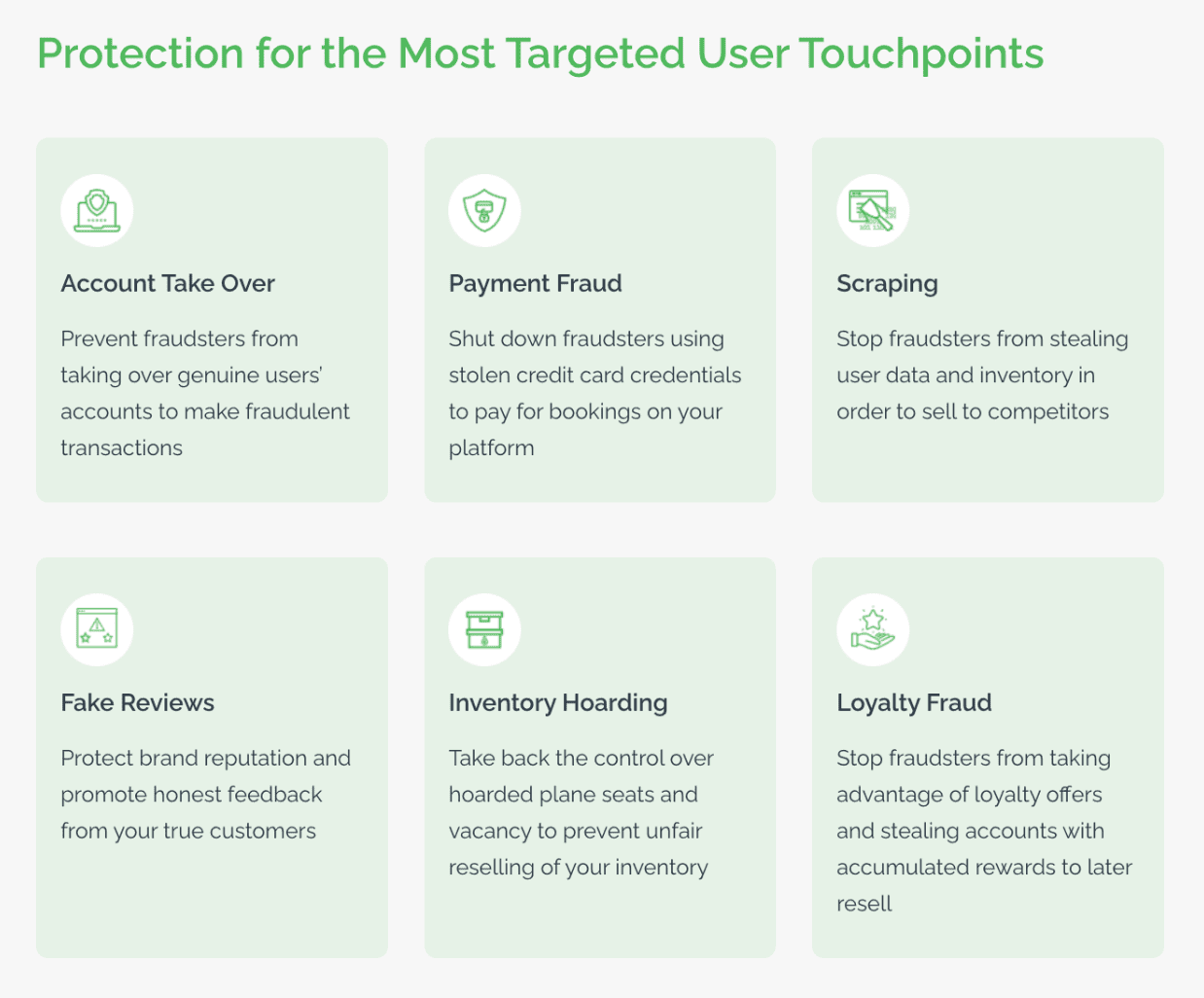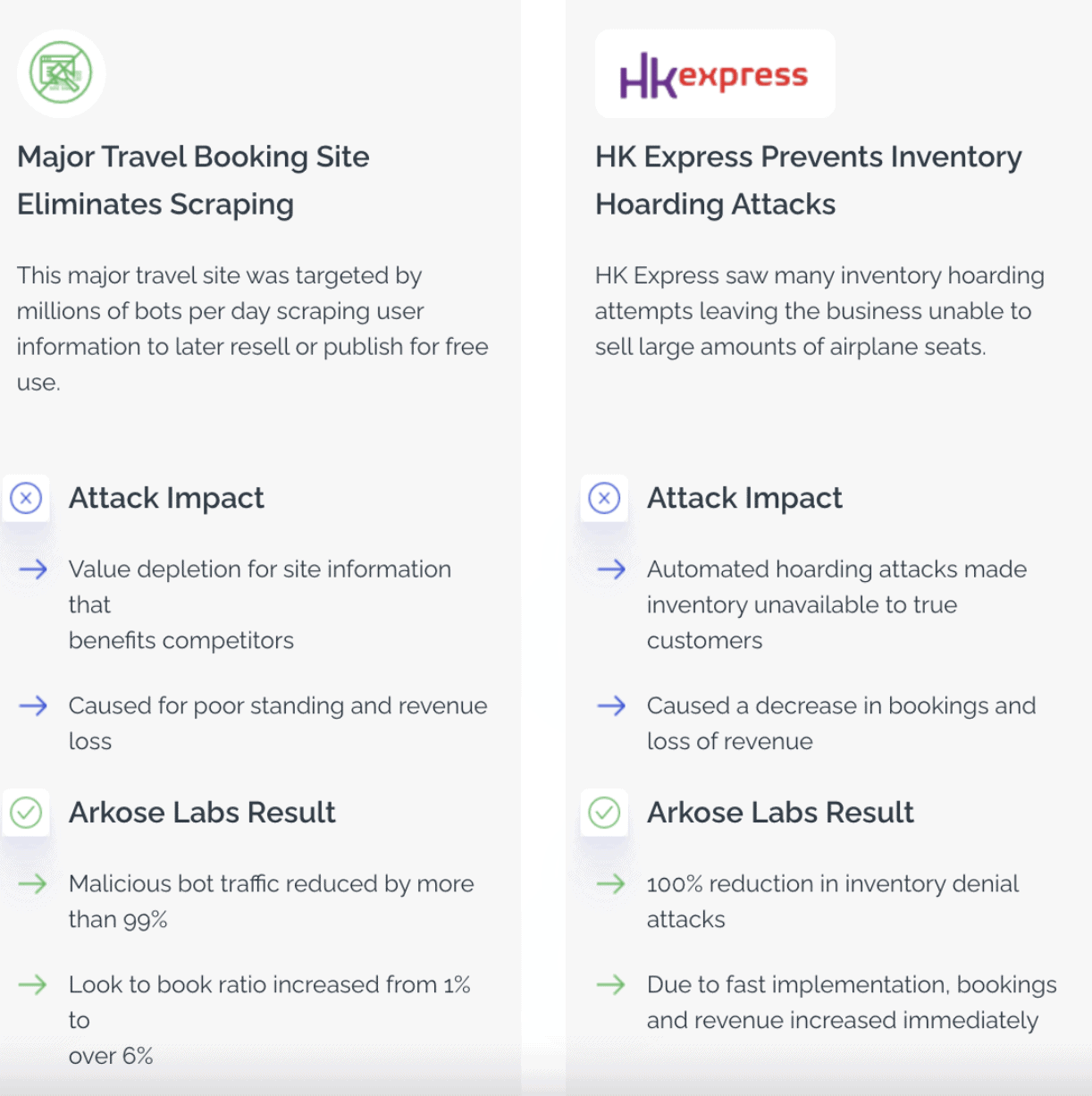
2023-11-17 03:59:53 Author: securityboulevard.com(查看原文) 阅读量:7 收藏
Today, where wanderlust meets the internet, planning the perfect getaway often involves navigating a labyrinth of online reviews and hotel rates. But as the travel and hospitality industry continues to flourish in the virtual realm, so does the prevalence of malicious activity, intended to threaten the success of consumer travel experiences. Here, we dive into the shadowy realm of travel reviews and rates, questioning the integrity of the information we often receive when trying to purchase or book a service.
Are the glowing testimonials and enticing price tags genuine, or are consumers unwittingly falling prey to the web of deceit spun by fraudsters and cybercriminals? In this exploration, we go beyond the surface, peeling back the layers to scrutinize the legitimacy of this virtual information associated with the travel and hospitality sector. Is the allure of glowing testimonials and tempting price tags really the path to a dreamy destination? Or just a clever illusion created by fraudsters…
The implications of fake reviews and bogus rates
The ramifications of such false information extend beyond mere inconvenience for consumers, casting a pervasive shadow over the very businesses that provide travel-related products and services. For consumers, the impact is evident in misguided choices and potentially disappointing experiences. However, for enterprises, the consequences are more profound, encompassing reputational damage and financial setbacks.
A surge in false reviews can distort a company’s online image, eroding trust and credibility. Moreover, manipulated rates can mislead potential customers, causing revenue losses and jeopardizing long-term success. In an industry built on trust and genuine experiences, the prevalence of these deceptive practices poses a dual threat, tarnishing both the consumer journey and the foundations of the businesses striving to deliver authentic and exceptional customer experiences.
The importance of online reviews, ratings, and rates
The significance of online reviews and ratings for business is real, especially for enterprises in the competitive realm of travel. These digital testimonials are not just commendations or critiques; they are potent influencers that directly impact consumer trust, purchase decisions, and a business’s online visibility. Positive reviews act as compelling endorsements, instilling confidence and offering a competitive edge, while negative feedback can dissuade potential customers. Search engines also prioritize businesses with positive reviews, contributing to higher rankings and increased online discoverability.
As modern-day word-of-mouth, online reviews shape brand image, provide valuable feedback for improvement, and serve as a vital aspect of a business’s overall reputation management strategy. In essence, the digital age has elevated the importance of online reviews to a critical factor that can determine the success or setback of businesses in the travel and hospitality industry.
Reputational attacks targeting travel and hospitality sector
Fabricating both positive and negative reviews, bad actors aim to deceive potential customers and undermine the credibility of genuine customer feedback, not to mention the business. The motivations behind these cyberattacks are diverse, ranging from competitors seeking an unfair advantage to disgruntled individuals with malicious intent to straight-up criminals looking for a payload.
As businesses increasingly rely on online platforms to showcase their services, the severity of these attacks grows clearer. The fabrication of positive reviews can create a false allure around subpar establishments, enticing unsuspecting customers with promises that fall short of reality. Conversely, the orchestrated generation of negative reviews can cripple even the most reputable businesses, sowing doubt and dissuading potential patrons. Small and independent organizations, in particular, find themselves disproportionately affected, facing not only financial repercussions but also the arduous task of rebuilding trust in the aftermath of fake reviews and rates.
Criminal tactics related to fake reviews and rates
Cybercriminals employ a variety of sophisticated tactics to perpetrate fake reviews and manipulate ratings:
- Bad bots and fraud farms are common methods involving the establishment of “review” farms and the use of automated bots. These fake accounts, designed to mimic genuine users, generate a large volume of reviews rapidly, posting fabricated positive information for certain businesses or inundating competitors with negative feedback.
- Sockpuppeting is another prevalent tactic, where cybercriminals create multiple fake identities to post reviews that appear to be from different customers. This approach adds an extra layer of complexity, as the use of diverse personas makes it challenging for platforms to detect and combat illicit activity.
- Review brigading is orchestrated by competitors or malicious actors through coordinated efforts, flooding a business’s online profile with negative reviews. This organized approach can be executed through online forums, social media groups, or other channels where like-minded individuals gather to collectively target a specific business.
- Deepfake techniques and AI-generated content allows attackers to leverage these tools to create realistic-looking reviews that mimic the writing style of genuine users, making them harder to identify through traditional means.
- Account takeovers represent another method, where cybercriminals gain unauthorized access to legitimate user accounts on review platforms. Once control is established, they manipulate the account to post fake reviews, either positive for affiliated businesses or negative for competitors.
- Third party services offering paid review packages can be exploited by criminals. These services employ individuals to write fake reviews, either positive or negative, based on the client’s requirements. This creates a lucrative underground market for the manipulation of online reputations.
- Manipulation of review algorithms is a subtle yet effective tactic. Fraudsters exploit weaknesses in the algorithms used by platforms to prioritize or feature certain reviews, strategically posting fake content to ensure specific reviews gain more visibility.
For businesses in the travel and hospitality sector, the impact of these cyberattacks is profound. The sheer volume of fake reviews can skew a business’s overall rating, misrepresenting its true quality. Positive reviews may create a false sense of popularity, leading customers to choose a subpar service, while negative reviews can severely damage a business’s reputation, causing financial losses and eroding customer trust.
Arkose Labs for travel and hospitality
Arkose Labs, the forefront defender in bot prevention, revolutionizes the way businesses in the travel and hospitality sector combat fake review fraud and bogus rates. In an industry where reputation is paramount, our technology stands out as the trusted partner to safeguard your brand integrity. Our cutting-edge solution goes beyond conventional solutions, specifically tailored to address the unique challenges faced by travel and hospitality businesses.

Say Goodbye to Fake Reviews:
We employ state-of-the-art machine learning algorithms and behavioral analysis to identify and thwart the menace of fake reviews. Protect your online presence from fraudulent activities that can tarnish your reputation and mislead potential customers. We enable genuine user interactions to take center stage, ensuring your business is celebrated for its authenticity.
Combat Bogus Rate Setups:
Unleash the full potential of fair pricing practices with Arkose Labs. Our solutions are designed to detect and prevent fraudulent rate-setting activities orchestrated by cunning fraudsters. Don’t let deceptive pricing schemes undermine your revenue and customer trust. We empower you to maintain control over your pricing systems, ensuring transparency and reliability for your consumers.
Travel Alert: Arkose Labs in Action

*** This is a Security Bloggers Network syndicated blog from Arkose Labs authored by Jenn Jeffers. Read the original post at: https://www.arkoselabs.com/blog/industry-alert-how-fake-reviews-bogus-rates-are-impacting-travel/
如有侵权请联系:admin#unsafe.sh
